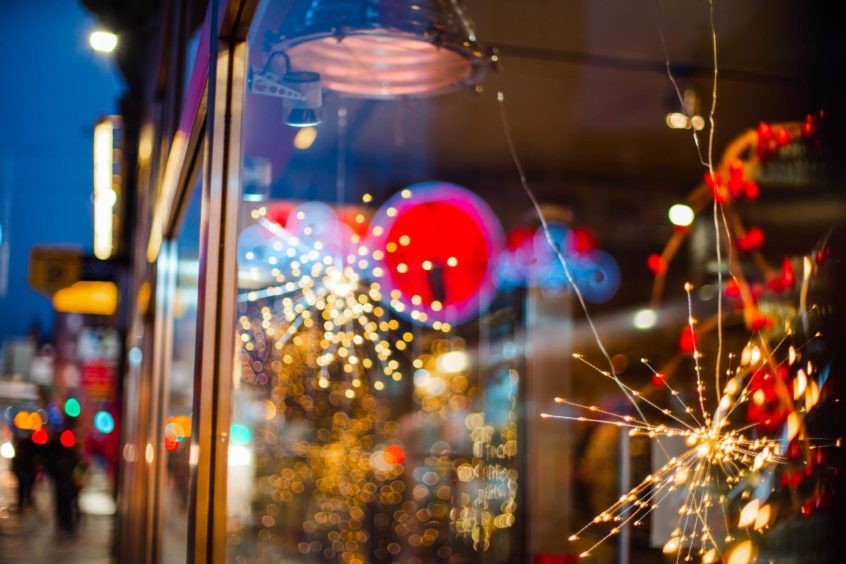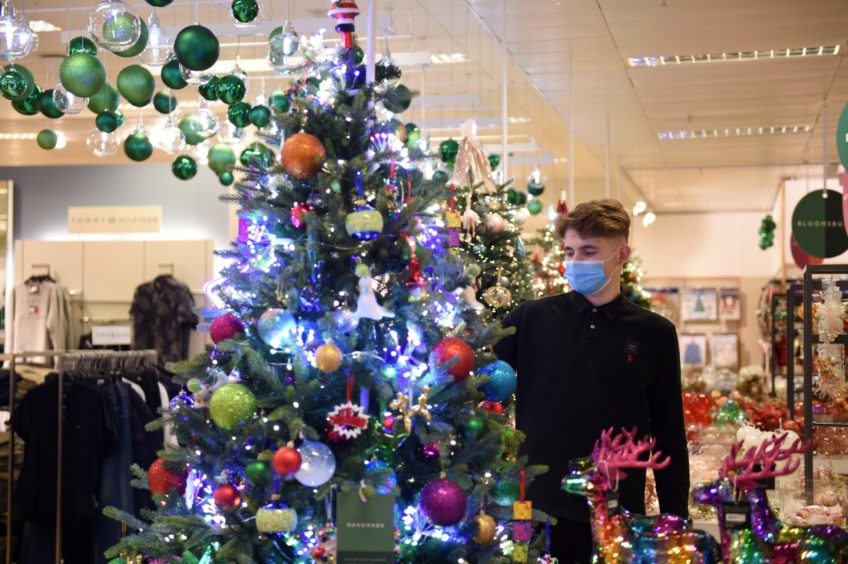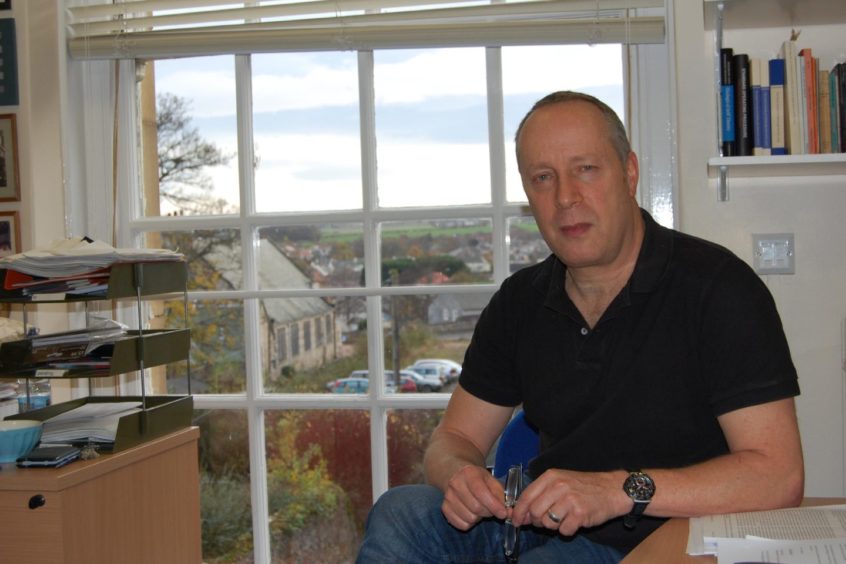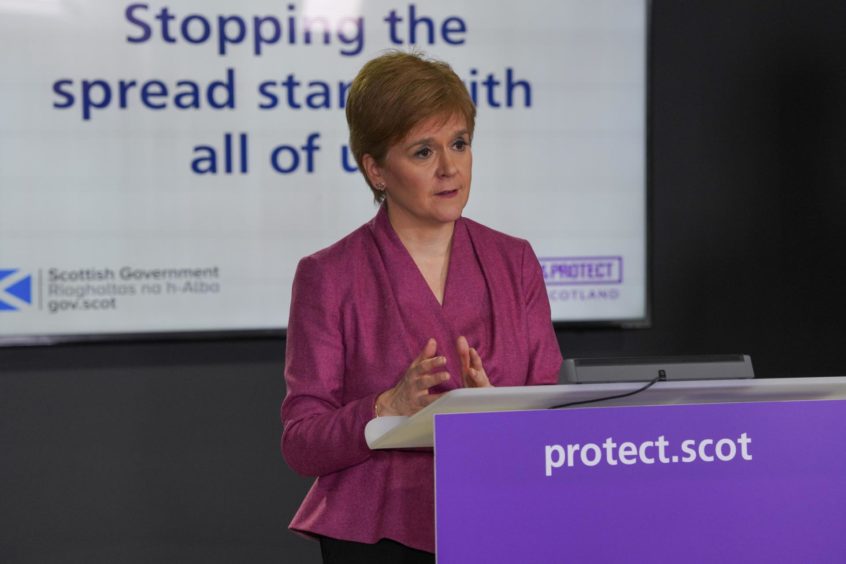Scottish families could form support bubbles – or “baubles” – to allow them to meet indoors over Christmas, Nicola Sturgeon has said.
The first minister said the idea is being considered as part of plans to loosen restrictions over the festive season, as she stressed her determination to make sure relatives are able to meet and spend time together as the year draws to a close.
Speaking during the Scottish Government’s daily briefing in Edinburgh, Ms Sturgeon raised hopes that Hogmanay could also be included in any decision as she pledged to “take that into account in our planning”.
She said: “I want people to have the ability to see loved ones at Christmas. I want to see loved ones at Christmas, and we’re determined to try to make that possible.
“But, equally, I want to do that, if possible, in a way that also minimises the risk of me standing at this podium in late January reporting really horrible numbers of people who have died because of infections they have picked up over the Christmas period.
“Like so much with this virus, we’re trying to strike the right balances but we all understand, from our personal feelings, as well as more generally, the importance for people of Christmas, and that is a key consideration for all of us right now.”
Ministers across the UK are reportedly considering loosening rules over a five-day period starting on Christmas Eve and the first minister confirmed talks took place at an “official level” on Wednesday morning over the issue.
Ms Sturgeon was also expected to take part in a call with Michael Gove and the first ministers of Northern Ireland and Wales on Wednesday afternoon, where she said Christmas plans were something that would likely be discussed.
University expert
The SNP leader was asked during the briefing to respond to comments by St Andrews University’s Stephen Reicher, an adviser to the Sage subcommittee on behavioural science, who suggested loosening restrictions could avoid widespread rule breaking.
Professor Reicher believes an informal contract with the public, where more household mixing is allowed but with a greater focus on hygiene and safety in the home, could increase compliance over Christmas and reduce overall contact and transmission.
Ms Sturgeon said: “I do think at Christmas it is important that, rather than leave people with restrictions that are so tight that many people will try to get round (them) in order to see loved ones at Christmas, it is better to do what we’ve tried to do all along and treat people like grown ups, and say, ‘Okay, here is perhaps a bit of leeway that as long as we all behave responsibly within, allows us to have some time with loved ones.
“What the parameters are around that, what the numbers around that are, there are no decisions. But we do want to allow people – and it will be within limits, undoubtedly – to see people that right now they are not able to see because of the very strict ban on household mixing.”

Asked if it is possible families could be allowed to mix freely by forming a social bubble, Ms Sturgeon said: “Yes, that’s possible.
“But that is not the same as saying that’s been decided, the idea of a bubble – or bauble is maybe a more appropriate way of articulating it at Christmas.”
As close to normal as possible
The UK Government’s medical adviser on Covid-19, Susan Hopkins, has said it is working on a plan to make Christmas “as close to normal as possible”.
Dr Hopkins, from Public Health England, told a Downing Street briefing that restrictions could be necessary either side of Christmas and that for every day measures are relaxed, five days of tougher controls would be needed.
On Tuesday Professor Neil Ferguson, whose modelling led to the first lockdown, in March, suggested extending support bubbles to up to four households for Christmas.
But Ms Sturgeon warned transmission rates will need to be driven down before any restrictions can be lowered, and said this had formed part of the decision to send more than two million Scots into the highest level of restrictions from Friday.
A grim milestone
It comes as official figures confirm the number of people in Scotland who have died with confirmed or suspected cases of Covid-19 has surpassed 5,000 for the first time.
Data released by National Records of Scotland shows the virus was mentioned on the death certificate of 5,135 people by last Sunday, including 278 people who died in the previous week.
Ms Sturgeon said: “The lower we can get infection levels now, the fewer people going into Christmas will have this virus, so the lower your chance will be that one of your relatives coming to your house for Christmas Day maybe will have it and pass it on.”


